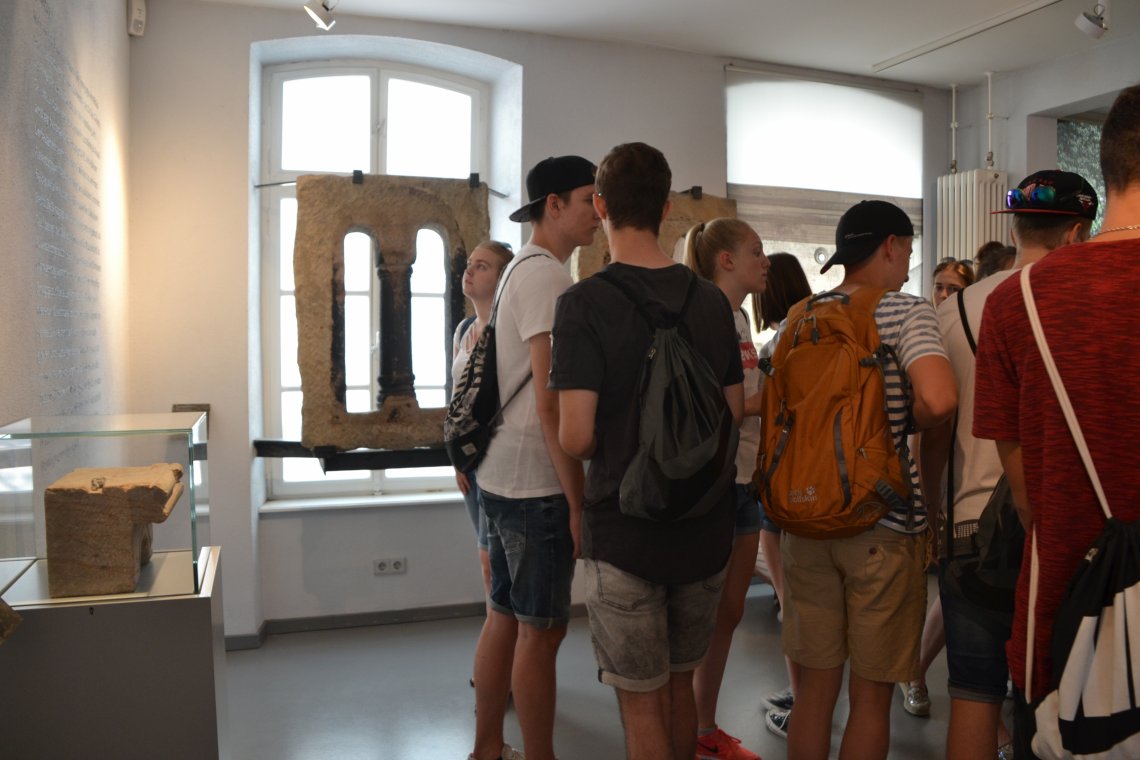ShUM today: learning and discussion
Educational offers that place the heritage of the ShUM Sites and the Jewish communities in a cross-epochal context to Jewish religion, scholarship and history were developed in parallel to the UNESCO World Heritage application.
Europe-wide experts from Jewish museums and educational centers have developed innovative and modern concepts together with the ShUM-Cities Association. Workshops and seminars, participation in conferences and the development of a network led to various concepts.
Report on educational concepts
For today's generations, the era long past should arouse curiosity. Not knowledge reproduction, but independent appropriation, multi-perspective approaches, interdisciplinarity as well as free access to sources and information are essential cornerstones.
At the same time, the communication of UNESCO values is equally important.
The communication of World Heritage to the public and the management of the sites in terms of sustainable development must be ensured. International cooperation, knowledge transfer, participation of civil society and local actors are crucial for success. Communicating knowledge about World Heritage, its basic ideas and history, the outstanding universal value of World Heritage sites and their importance in today's societies as places for intercultural encounters.
UNESCO website on education
he focus is on providing adequate guidance to a wide variety of learning groups: from elementary school through the various types of schools to adult education.
»Based on local testimonies, there are opportunities everywhere in Germany to learn about German-Jewish history. However, we unfortunately have to realize that the knowledge in the population about the Jewish past and present is very low. However, lack of knowledge about a certain group of people, especially a minority, almost always leads to prejudice. This phenomenon, with all its terrible consequences, runs like a thread through German-Jewish history. Even today, it is still true that even those who have never personally met a Jew, who are not actually interested in Judaism, are familiar with anti-Semitic prejudices. They are passed on from generation to generation - and the less one knows about Jews, the better they survive.
We have to fight against this. And above all in schools. Not only must more knowledge about Judaism be taught in the classroom, but there must also be more education about anti-Semitism.
If it is shown right across society how diverse Jewish life is, if Jews are no longer perceived as foreign, then we can achieve that many a prejudice about Jews finally disappears once and for all.«
Dr. Josef Schuster, President of the Central Council of Jews in Germany in February 2021; (https://www.zentralratderjuden.de/aktuelle-meldung/artikel/news/eroeffnung-des-festjahres-1700-jahre-juedisches-leben-in-deutschland/)
ShUM: that is not dusty stones and old documents. SchUM was modern, SchUM is a space of history and the present that needs to be discovered.
Philip Spiers: "As far as I know... My Father"
Interview with the son of Horst Spies from Biblis, who was a pupil at the Jewish district school in Worms from 1935 on. Horst Spies was deported to Buchenwald concentration camp in 1938 at the age of 16 and fled to England after his release. What did he tell about Worms, the synagogue, the 1938 pogrom? How did he continue his life? How did he experience the post-war period - and what connects his son, Philip Spiers, with Worms today? In about 30 minutes Philip Spiers reports on the passing of memory and leaves us with a task for the future.

